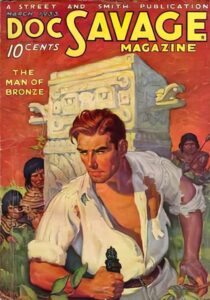
Writers new to the fiction racket are often confused about first principles. And why hot? First principles are rarely stated fair and square. Or at all.
Here’s one: You can write fiction as if it’s a true story. You can write it as if it’s a fake story. It makes a difference.
Some stories are obviously made up. You can tell from the first few words: “A guy walks into a bar.” “Once upon a time.” Others are more subtle. Some stories are obviously true. And some that aren’t true look and feel as if they are.
This appearance of truth buys you things worth having.
How People Tell Real Stories
The world is awash in published true stories: things that actually happened and are told truthfully, more or less. And you know what? If written halfway competently, truth has the ring of truth about it! Not because of what it says, but the way it says it. In this sense, truth is stronger than fiction. We can use that.
Continue reading “Write Stories as if They’re True: Truth is Stronger than Fiction”



